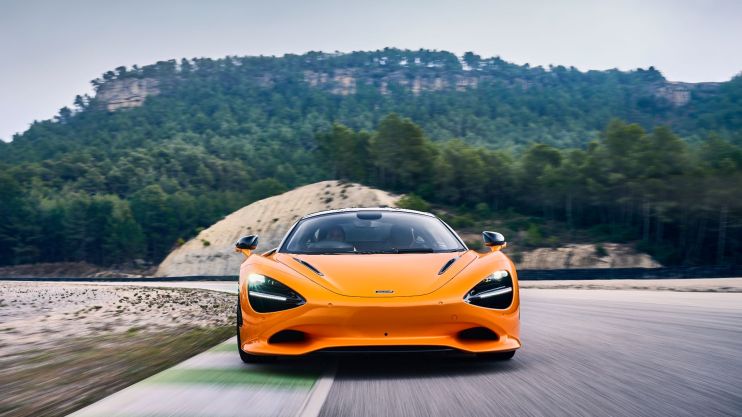McLaren chief: Making electric supercars ‘doesn’t make sense today’

Manufacturing electric supercars “doesn’t make sense today” the chief executive of McLaren Automotive has argued, despite the clock ticking down to a 2030 ban on the sale of new petrol and diesel vehicles.
Michael Leiters, who joined the British luxury carmaker last July, said that McLaren would find it “very, very challenging” to produce a “relevant” electric supercar in time for 2030.
In an interview with the Times, the German-born chief also questioned whether accelerating electric production would help slash emissions ahead of 2030, as McLaren drivers use their vehicles as “low-mileage cars.”
“If I build today an electric car, I put, to build it, more emissions in it than in an ICE [internal combustion engine] car,” he said.
“But then my customers don’t have enough mileage to recover, driving electric, these additional emissions. It doesn’t make sense today to have that for a supercar.”
Supercar producers have lagged behind in the automotive sector’s transition to electric vehicles (EVs) amid a lack of investment in higher powered battery technology.
The boss of McLaren insisted he was a “big fan” of electric cars, but argued that battery tech had not yet advanced enough and was currently too heavy for high performance sports cars.
“I don’t want to make a sports car, a supercar, which weighs 2,000 kilograms or 2,200 kilograms,” Leiters said. “A supercar is light. If we do an electric supercar, it will be light. It should be around 750 [kilograms] weight. It shouldn’t be two tonnes. Two tonnes is an SUV.”
He added: “If somebody is saying today, ‘we will ban [petrol and diesels] in 2030’, for somebody like us it will be very, very challenging to bring out a customer-relevant proposition for a supercar.”
His comments come as Prime Minister Rishi Sunak faces political pressure to ease the 2030 deadline, with many in the automotive sector concerned the UK is not far enough forward in its transition to greener vehicles.
In May, media reports suggested the government was considering an “Aston Martin exemption,” to allow smaller carmakers a longer period to make the transition.
The head of Volkswagen and Porsche, Oliver Blume, has also called on the government to create a “clear plan” and timings for the ban.
In Europe, Ferrari and Porsche lobbied hard for an exemption to the EU’s own 2035 combustion engine ban, which enables the continued use of combustion engines in e-fuel powered vehicles.